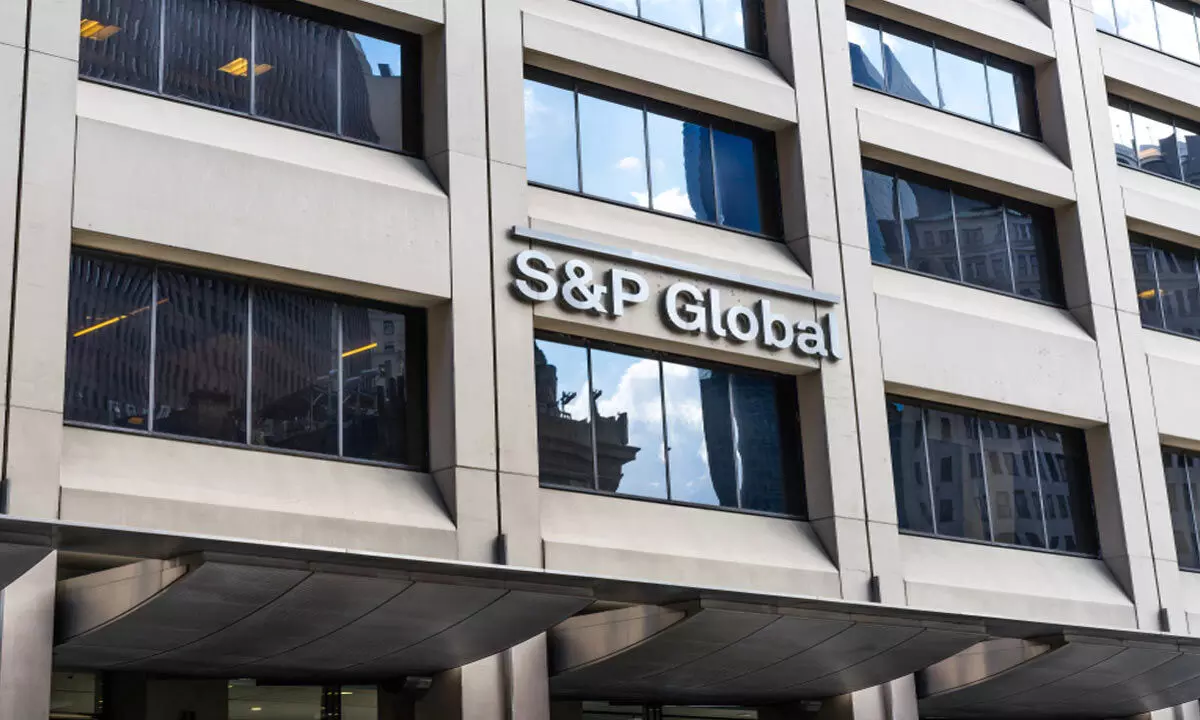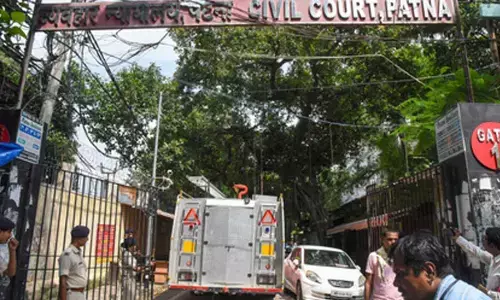RBI's tighter regulatory risk weight to hit banks' capital adequacy by 60 bps: S&P
Share :

The Reserve Bank's decision to tighten norms for consumer credit by raising risk weight for unsecured personal loans is likely to hit banks' capital adequacy by 60 basis points, S&P Global Ratings said on Friday.
New Delhi: The Reserve Bank's decision to tighten norms for consumer credit by raising risk weight for unsecured personal loans is likely to hit banks' capital adequacy by 60 basis points, S&P Global Ratings said on Friday.
The move will curtail riskier bank lending to consumers and is expected to squeeze the nonbank sector in particular. The RBI on Thursday increased risk weights on unsecured personal loans, credit cards, and lending to nonbank finance companies (NBFCs) by 25 percentage points. This will likely lead to higher lending rates, lower credit growth, and increase the need for capital raising among weak lenders, S&P Global Ratings said, adding that higher risk weights will ultimately support asset quality.
"Slower loan growth and an increased emphasis on risk management will likely support asset quality in the Indian banking system. "However, the immediate effect will likely be higher interest rates for borrowers, slower loan growth for lenders reduced capital adequacy, and some hit on profits. We estimate that the Tier-1 capital adequacy of banks will decline by about 60 basis points. Finance companies will be worse affected as their incremental bank borrowing costs will surge, in addition to the capital adequacy impact," S&P Global Ratings credit analyst Geeta Chugh said in the statement. These changes will not have any immediate effect on India's financial sector ratings, and this will also not affect the risk-adjusted capital ratio for the rated banks and finance companies, the agency said. Unsecured personal loans and credit card debt have risen rapidly in the past few years in India.
Such loans have grown 26 per cent in the 12 months ending September 2023. This type of loan, along with consumer durable lending, represented about 9.8 per cent of total loans in the banking system as of September 22, 2023. Small-ticket personal loans of less than Rs 50,000 are particularly at higher risk. Reported delinquencies (90-plus days past due) for this type of lending was 5.4 per cent as of June 2023, according to credit bureau Transunion Cibil. While these small borrowers are often highly leveraged and may have other lending products, loans below Rs 50,000 comprise only 0.3 per cent of total retail loans. Financial technology firms are more exposed to these loans, as around 80 per cent of their personal loans are in this customer segment, the rating agency said. Notwithstanding the risk of a potential buildup of imbalances in some categories of retail loans, the delinquency rate of 90-plus days past due is at acceptable limits for this product category, it added. Specifically, as of June 30, 2023, the delinquency rate was 1.6 per cent for credit cards and 0.8 per cent for unsecured personal loans. "NBFCs face a double-whammy of higher risk weights on their unsecured loans and on bank lending to NBFCs.
This will squeeze the reported capital adequacy of nonbanks and push up their funding costs," said S&P Global Ratings credit analyst Deepali Seth Chhabria. While NBFCs are not homogeneous, many retail-focused finance companies have a much higher exposure to unsecured loans than banks. For example, Poonawalla Fincorp Ltd (PFL), part of Cyrus Poonawalla Group, said the capital adequacy ratio would come down by 2.20 per cent due to the RBI's action. Based on initial calculations, the increase in the risk weight from 100 per cent to 125 per cent on the company's consumer credit exposure would be marginal and is expected to be around 220 bps, Poonawalla Fincorp Ltd said in a separate press release. With this, the resultant capital adequacy would moderate to 40 per cent, still significantly higher than the regulatory requirement of 15 per cent, PFL said.













